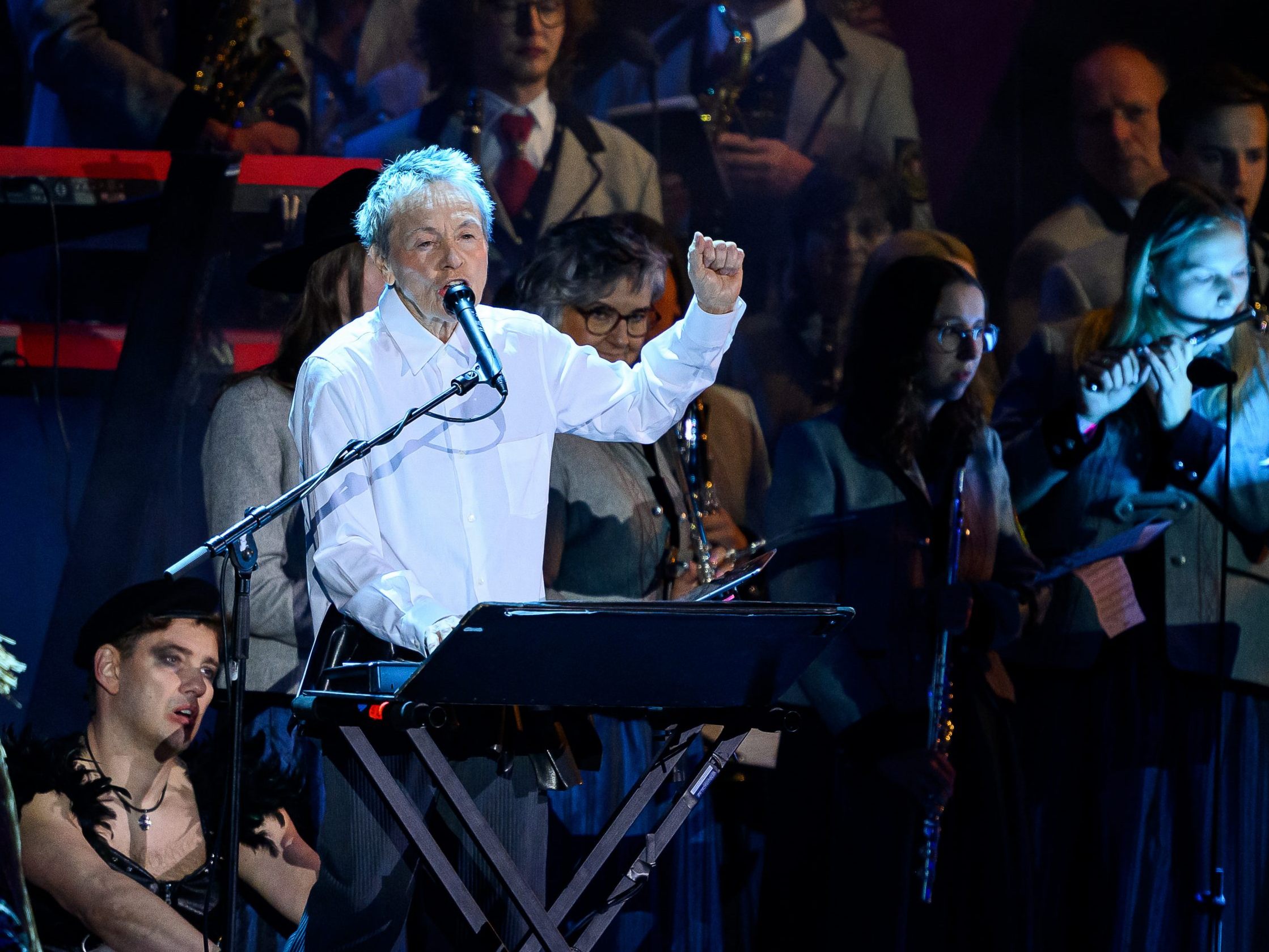Vienna Festival Weeks: Opening Speech by Performance Artist Laurie Anderson

In the sold-out ORF Radiokulturhaus, the 77-year-old dedicated herself to the "State of Love." A charming, poetic-musical evening, at the end of which Lou Reed, Anderson's husband who passed away in 2013, was also to play a role.
Anderson would address the conceptual ambiguity between the "State of Love" and the "Condition of Love," announced director Milo Rau at the beginning of the 100-minute evening, thanking the artist who had already performed at the opening at Rathausplatz and participated in a "Campfire" session on Sunday evening. Initially, Anderson left the stage to the Mozart Boys' Choir to open her performance with William Billings' "David's Lamentation," a lament about the death of King David's son Absalom. For Anderson, a theme that is also reflected in today's society: "The older generation is soooo sorry for destroying the planet," said Anderson. "But the young can try to save it."
Laurie Anderson's Speech at the Vienna Festival Weeks: Memories, US Politics, and Music
What followed was a wild ride through personal stories, meditation rituals, quotes from writers from Allen Ginsberg to Nadine Gordimer, and references to intellectuals like Heather Cox Richardson or Naomi Klein. However, before love came into play, Anderson first addressed the state. "We are building fortresses again these days," lamented the performance icon, who stood in a simple outfit in front of the microphone. She was particularly critical of her homeland, the USA - specifically Donald Trump. There is no longer any overview of the changes, "a new law is passed every 15 minutes." She dedicated herself extensively to one of them and projected a list of words that are to be removed from all government documents - from "women" to "climate crisis" to "minorities."
Amid musical interludes with iPad, electric violin, piano, and voice distorter, the discussion continued about the new Pope Leo XIV, who, like her, is from Chicago, her correspondence with John F. Kennedy, whom she, as a 13-year-old candidate for school president, asked for tips for her campaign (and received a response), or the difference between anti-war protests then (Vietnam) and now (Gaza). The transition to love finally came with a quote from the American philosopher Cornel West: "Justice is what love looks like in public."
Conversation with Freud and Tai Chi with Lou Reed
Due to the advancing time, Anderson eventually made fewer remarks about love and flipped vigorously to the end of her manuscript. In one scene, she had an imaginary conversation with an AI-generated, smoking Sigmund Freud about women, and in another, she recalled her mother's loving reaction when, as a child, she was almost responsible for the death of her younger twin brothers when they all fell through the ice. Anderson saved the children. "I expected my mother to scold me. Instead, she said: You are a good swimmer, I didn't know you could dive so well." A small mother-daughter scene that has remained in her memory to this day and clearly shows the power of words.
Laurie Anderson's conclusion, with which she finally connected to the festival weeks: "Love cannot give you an idea of music, but music can give you an idea of love." How much love extends beyond death, Anderson finally demonstrated impressively in the last program point of the evening, when she asked the audience in the hall to stand up and perform a sequence of Tai Chi movements with her that Lou Reed had taught her. And so the evening ended in a meditative group exercise, which eventually turned into prolonged applause.
(By Sonja Harter/APA)
(APA/Red)
This article has been automatically translated, read the original article here.





